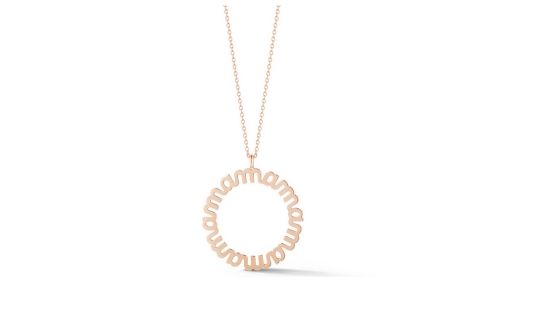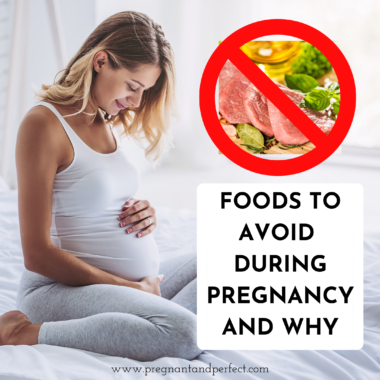A pregnant woman’s food preferences are at once the most alarming thing in a plate and the most hilarious event in food history. Her pregnancy cravings can have you questioning her sanity. It is simply inexplicable! Even you, the culprit, cannot understand why you want what you want, and why you want it so badly. Studies show, though, that it could be just your body craving a particular nutrient.
While we may blame the impish hormones for our food choices, or our feeding-for-two situation for the quantity we consume, the blame seems to rebound and hit us in the face every time we step on a scale.
We know that of the extra 27kg that we have put on, the baby, placenta, baby boobs and other baby-supporting structures are, at most, responsible for 18kg. So who is responsible for 9kg?
Why Do Pregnant Women Gain Weight?
Make no mistakes, putting on weight during pregnancy is inevitable and important. In fact, a pregnant woman is expected to put on an average of 16kg. The new tenant has their own needs so they make their own demands; they need a befitting home too. This makes it nearly impossible to feel full with the same meal portion that used to satisfy us. Also, the fact that you are catering to more than you used to leads your body to store more food than it previously deemed enough. This is because it deduces that a reserve for one is just not sufficient a reserve for two.
It can be detrimental to your child’s healthy development if you attempt to lose weight by excessively shrinking your food intake. You can’t afford to deprive your body of the necessary food nutrients and in their right proportions, especially since food is the primary source of nutrient supply.
Considering that this is a critical time in your baby’s development, it is most pertinent that all necessary nutrients be present in sufficient quantities. A deficiency in certain nutrients has been linked to certain infant health challenges and birthing complications.
How Can You Keep a Lid on Your Weight Gain When Pregnant?
While reasonable weight gain is nothing to be too worried about, excess weight gain can often signal the onset of trouble.
Often, when weight gain is within practical bounds, a combination of the right diet, nursing demands and lifestyle choices, will help us shed most of the weight within the early post-partum months.
In order to ensure that our weight gain does not get to the point where we begin to struggle with being overweight long after childbirth, we need to take certain steps to ensure that it stays within the ‘safe zone’.
1. Opt for healthy nutrient-packed foods
Sometimes, the biggest adversary we have to stand up to in our weight management journey is our taste buds. It seems to have a life of its own, shamelessly craving everything, even those foods that you would have otherwise never given as much as a thought to. This makes it even more important that you stay in control of what goes into you. Highly beneficial foods should be prioritised over others.
Fruits and vegetables are packed with the nutrients that both of you really need and what’s more? You don’t have to worry about fats when it comes to them. Complement them with whole grains, nuts and foods high in fibre like avocado and broccoli. Fibre helps to improve digestion and combat constipation which is a common recurrent problem during pregnancy.
You also need an increased amount of protein, iron, omega-3, vitamin D, vitamin A, monounsaturated fatty acids and folate. You can get these from legumes, lean meat, sweet potatoes, cod liver oil, salmon and eggs. Maintaining a healthy supply of dairy products is also important. It is advisable to take a lot of milk (skimmed milk is preferable), yoghurt; and to consume and make food choices that are in line with your weight goals. Soups, salads and vegetables are good options in these situations.
2. Avoid unhealthy foods
While it is okay to indulge when we are overwhelmed, it is necessary to be rational about what is allowable and how much of it is. Avoid artificially sweetened foods like candy, soda and ice cream.
Junk is completely out of the equation!
Reduce your fat intake. Foods that include oils, mayonnaise, butter, etcetera, should be avoided as much as possible. In cases where they are integral to your meal recipe, opt for products that are low-fat variations of these foods.
3. Take a lot of Water
This cannot be emphasized more. Water is important for healthy body metabolism and child development. During pregnancy, your blood volume increases so your water requirement increases as well. Also, the amniotic fluid which caters to the baby’s locomotive, respiratory and excretory needs while in the womb is made up of 98% water. It is usually used to assess the health and gender of the baby while it’s in the womb. The volume of this fluid increases further in the 34th week of pregnancy.
This places emphasis on the need for sufficient water intake. The recommended volume is 3 litres daily, but, this amount varies according to the individual and the stage of the pregnancy
Taking water in place of soda and other artificially flavoured drinks is definitely worth your while. Commit to drinking up whenever you can!
4. Avoid a sedentary lifestyle
Even if you aren’t an exercise junkie, you would be doing your post-partum body a world of good by adopting an active lifestyle.
It is best to incorporate some light exercise routines like walking, stretches and leg raises in order to maintain muscle tone, heart health and burn extra calories. Yoga is also a great way to stay fit and mentally healthy during this period.
There are moderate exercises that are very safe for both you and your little one and you should make time to incorporate them in your life.
5. Stay abreast of your weight gain
As much as you are desirous of keeping a trim weight gain while pregnant, you will be mostly unaware of how much weight you are gaining at regular intervals. You, therefore, run the risk of being taken unawares by excessive weight gains before realisation hits.
The best way to stay in control of your weight gains is by being conscious of how much weight you are putting on. Compare this against the expected weight gain at every given stage of your pregnancy to know if you’re still on course.
While we have put some ample emphasis on weight gains during pregnancy, it is worth mentioning that sometimes, excessive weight gains set in after childbirth. Also, the idea is not to look “skinny” as fast as you can after childbirth; it’s to stay healthy.
So, dear new mommies, it isn’t enough to monitor your pre-natal weight gains if you’ll go on to lose your commitment afterwards. The journey has to be sustained.
- How Setting Postpartum Boundaries made me lose my brother - February 6, 2025
- How To Revive Your Sex Life After Baby - October 17, 2023
- The Sona App Aims To Make Your Child “Sleep Like A Baby” And We Tested It - May 14, 2023








